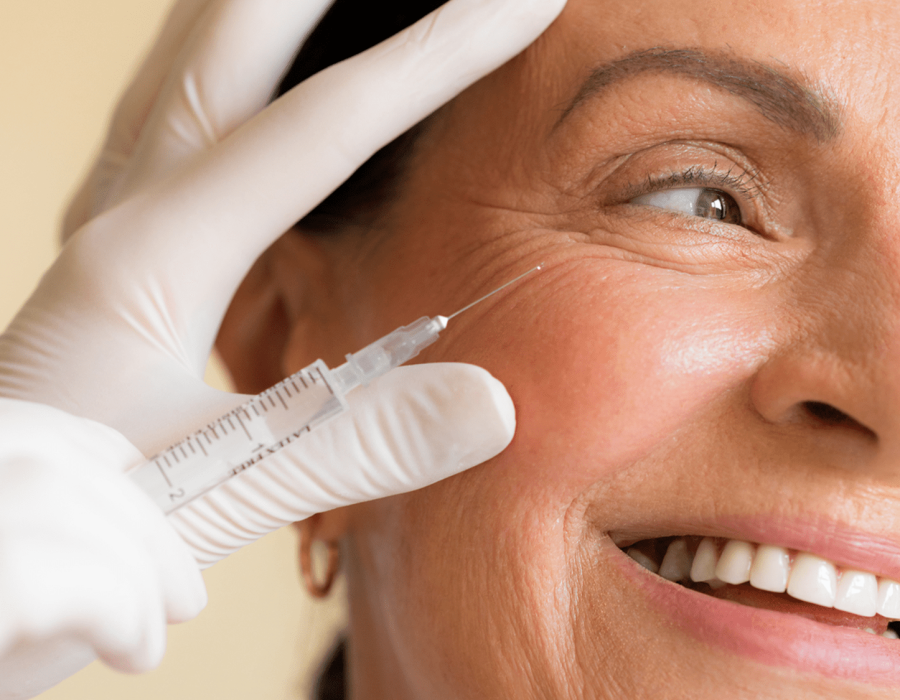Botox injections have become one of the most popular non-surgical cosmetic treatments worldwide, with millions of people opting for the procedure each year. Often associated with the pursuit of youthful, wrinkle-free skin, Botox has gained significant attention in both the beauty and medical industries. However, as its use grows, many are beginning to question whether Botox can be addictive. In this article, we explore what Botox in Dubai is, how it works, its potential for addiction, and the underlying reasons people continue to seek this treatment.
What Is Botox?
Botox is a brand name for botulinum toxin type A, a neurotoxin produced by the bacterium Clostridium botulinum. In medical and cosmetic treatments, Botox is used to block nerve signals in muscles, temporarily paralyzing them. When injected into specific muscles, it can reduce the appearance of wrinkles by preventing the muscles from contracting, leading to smoother skin.
In addition to its cosmetic use, Botox is also used for a range of medical conditions, including chronic migraines, excessive sweating (hyperhidrosis), muscle spasticity, and overactive bladder.
How Does Botox Work?
Botox injections are typically administered by a licensed healthcare professional, usually in a clinical or medical spa setting. The procedure involves small amounts of Botox being injected into specific facial muscles or areas of the body. Botox temporarily blocks the release of acetylcholine, a neurotransmitter that is responsible for muscle contraction. As a result, the targeted muscle becomes temporarily paralyzed, leading to a reduction in wrinkles and a more relaxed, smoother appearance of the skin.
The effects of Botox are not permanent. Typically, the results last between three to six months, after which the muscle activity gradually returns, and the wrinkles or other treated conditions may reappear.
Is Botox Addictive?
The question of whether Botox is addictive is often raised, especially as Botox treatments become more popular among those seeking aesthetic improvements. In a psychological sense, Botox is not physically addictive. There is no evidence to suggest that Botox causes cravings or withdrawal symptoms similar to substances like alcohol, nicotine, or drugs.
However, there are psychological factors that can lead individuals to seek Botox treatments repeatedly. While Botox does not cause physical dependence, some people may develop a psychological reliance on the treatment, often due to the visible results and the boost in self-esteem that can come from a more youthful appearance.
Psychological Factors Behind Repeated Use
- Desire for Perfection: Many individuals seek Botox to improve their appearance, particularly in a society that often emphasizes youth and beauty. The visible results of Botox—fewer wrinkles, smoother skin—can be seen as a quick fix to the aging process. For some, the positive effect Botox has on their self-image may encourage them to continue using the treatment regularly.
- Social Pressure and Expectations: In a culture where appearance is highly valued, social media, celebrity influence, and peer pressure can play significant roles in people’s decisions to undergo cosmetic procedures. The desire to conform to societal standards of beauty may drive some to continually seek Botox treatments to maintain a youthful look.
- Fear of Aging: Botox can help diminish the signs of aging, but for those with a deep fear of aging or wrinkles, the temporary results of Botox might not feel like enough. These individuals may find themselves returning to Botox treatments frequently to maintain a certain aesthetic standard, thus creating a cycle of continuous use.
- Boost in Confidence: The positive psychological effects of Botox are significant for many people. When a person’s appearance improves, their self-esteem and confidence often rise as well. This emotional boost may make someone more likely to return for additional treatments to sustain these benefits.
Can Botox Become a Habit?
While Botox is not physically addictive, it can become habitual for some people. Regular Botox injections may become a part of one’s routine, particularly for those who are satisfied with the results and seek to maintain a youthful appearance. Over time, the desire to retain this image can lead to repeated visits to the clinic or doctor’s office.
It’s also worth noting that the repeat use of Botox is not inherently harmful if done under the guidance of a qualified professional. However, there are risks associated with excessive use or misuse of Botox, including the potential for botulism-like symptoms if too much Botox is injected into a particular area or if it’s injected improperly. Therefore, it’s essential to follow the recommended guidelines and consult with a certified healthcare provider.
The Bottom Line: Botox and Addiction
Botox is not addictive in the traditional sense—it does not create a physical dependency or withdrawal symptoms. However, some individuals may develop a psychological or habitual reliance on the treatment due to the positive effects it has on their appearance and self-esteem.
If you are considering Botox for cosmetic or medical reasons, it’s important to approach the treatment with realistic expectations and to understand that the effects are temporary. It’s also critical to have open discussions with your healthcare provider about your motivations for seeking Botox and to ensure that your decision is based on a healthy desire for self-care, rather than pressure from external factors or unrealistic beauty standards.





Comments